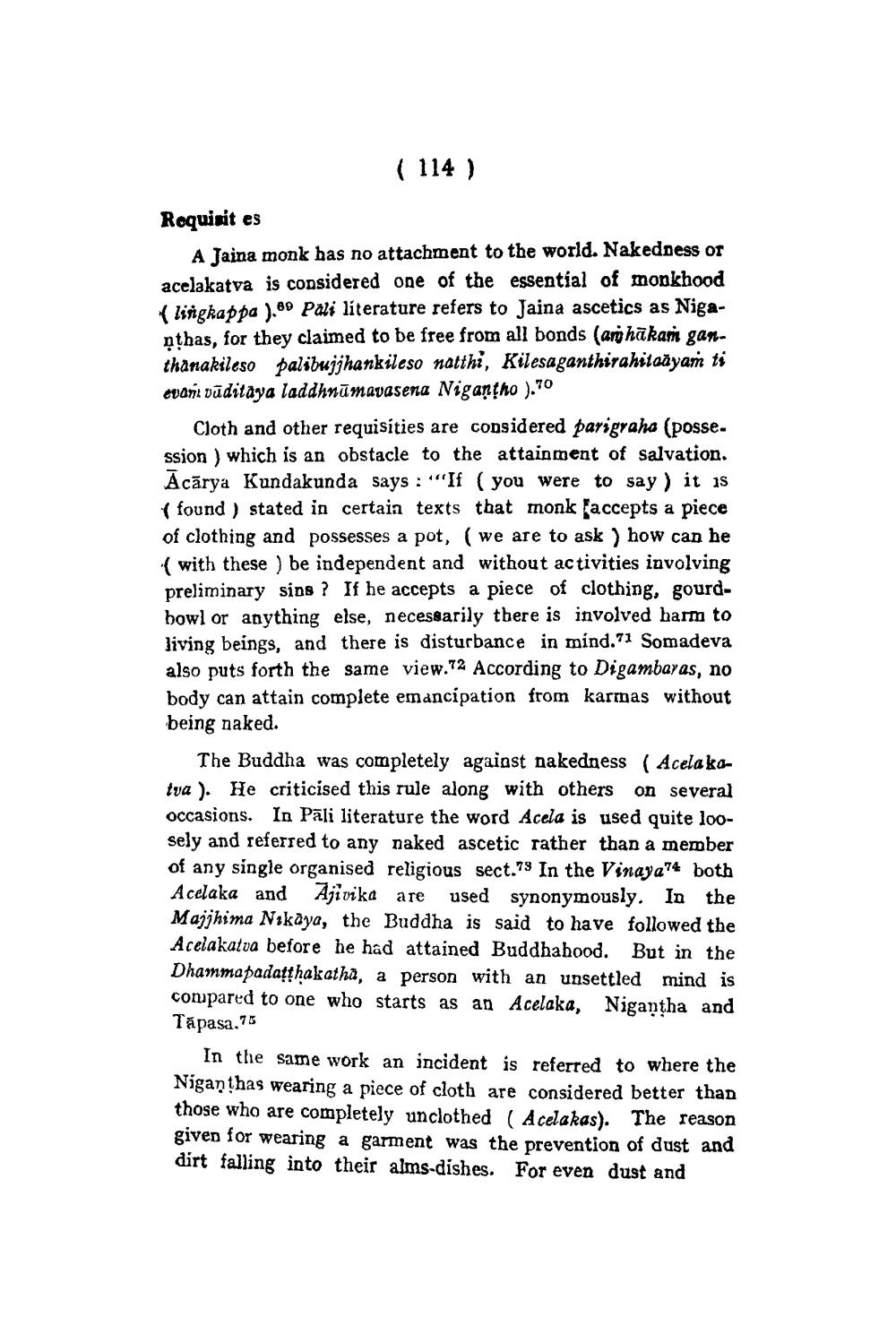________________
( 114 )
Requint es
A Jaina monk has no attachment to the world. Nakedness or acelakatva is considered one of the essential of monkhood K litigkappa ).89 Pali literature refers to Jaina ascetics as Niganthas, for they claimed to be free from all bonds (arhakam gan. thanakileso palibujjhankileso natthi, Kilesaganthirahitaāyam ti evani vāditaya laddhnūmavasena Nigantho ).70
Cloth and other requisities are considered parigraha (posse. ssion ) which is an obstacle to the attainment of salvation. Acārya Kundakunda says : ""If you were to say ) it is ( found ) stated in certain texts that monk accepts a piece of clothing and possesses a pot, (we are to ask ) how can he { with these ) be independent and without activities involving preliminary sins? If he accepts a piece of clothing, gourd. bowl or anything else, necessarily there is involved harm to living beings, and there is disturbance in mind.71 Somadeva also puts forth the same view.72 According to Digambaras, no body can attain complete emancipation from karmas without being naked.
The Buddha was completely against nakedness (Acelakatva ). He criticised this rule along with others on several occasions. In Pāli literature the word Acela is used quite loosely and referred to any naked ascetic rather than a member of any single organised religious sect.79 In the Vinaya74 both Acelaka and Ajivika are used synonymously. In the Majjhima Nikaya, the Buddha is said to have followed the Acelakatua before he had attained Buddhahood. But in the Dhammapadatthakatha, a person with an unsettled mind is conpared to one who starts as an Acelaka, Nigantha and Tápasa.75
In the same work an incident is referred to where the Niganthas wearing a piece of cloth are considered better than those who are completely unclothed ( Acelakas). The reason given for wearing a garment was the prevention of dust and dirt falling into their alms-dishes. For even dust and




